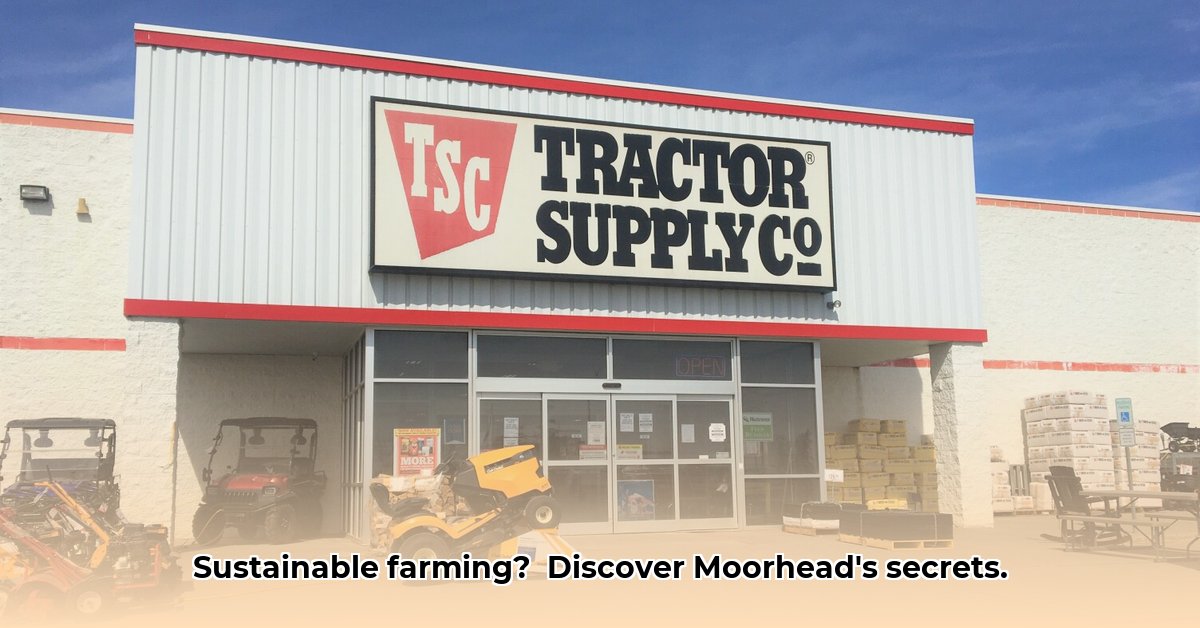
Tractor Supply Moorhead Minnesota: Empowering Sustainable Agriculture
Moorhead, Minnesota boasts a rich agricultural heritage, but modern farming faces new challenges: unpredictable weather, resource scarcity, and consumer demand for eco-friendly food production. How can local farmers adapt? Tractor Supply (TSC) in Moorhead plays a surprisingly significant role, extending beyond traditional agricultural supplies to offer a growing range of sustainable solutions. But is it enough? This article explores TSC's current offerings, identifies areas for improvement, and proposes a strategic roadmap for maximizing its contribution to sustainable farming in the region. Learn more about TSC's sustainability initiatives here.
Are local farmers fully leveraging the sustainable resources available to them? The answer, arguably, is no. While TSC carries organic seeds, water-saving irrigation systems, and environmentally friendly animal feed, these options aren't always prominently displayed or marketed effectively. This represents a significant missed opportunity to reach a wider audience of environmentally conscious farmers.
"Tractor Supply has the potential to be a true leader in sustainable agriculture," says Dr. Emily Carter, Professor of Agricultural Sustainability at North Dakota State University. "However, a more proactive approach to marketing and education is crucial."
TSC's current strengths include its convenient location, established customer trust, and broad product selection. However, challenges remain. Sourcing consistently reliable, sustainably produced goods can be complex and costly. The company's marketing strategies haven’t fully capitalized on its green offerings. This presents a barrier preventing many farmers from accessing these essential resources.
A Multi-Pronged Approach to Sustainable Farming
To effectively support sustainable agriculture, TSC needs a comprehensive strategy:
Dedicated "Green" Section: A clearly designated area within the store showcasing sustainable products would improve visibility and accessibility for farmers seeking eco-friendly options. This organization would streamline the shopping experience, making it easier to find organic seeds, water-efficient tools, and other sustainable supplies.
Targeted Marketing Initiatives: A robust marketing campaign, highlighting TSC's commitment to sustainability, is essential. This could involve targeted advertising, workshops, partnerships with local influencers, and educational materials demonstrating the benefits and practicality of sustainable farming practices.
Becoming an Educational Hub: Collaborating with local agricultural organizations would allow TSC to host workshops and educational sessions on sustainable farming techniques, solidifying its reputation as a resource and partner for local farmers.
Strengthening Local Partnerships: Working directly with regional suppliers and farmers to source certified sustainable products ensures quality, supports the local economy, and builds trust among consumers.
Navigating the Challenges: Risk Assessment
Implementing a sustainable strategy isn’t without its challenges:
Supply Chain Risks: Sourcing affordable, environmentally friendly products might prove difficult. Mitigation Strategy: Explore diverse suppliers and cultivate long-term relationships to ensure consistent supply.
Market Demand Risks: Consumer adoption of sustainable products might be slow. Mitigation Strategy: Promote the environmental and economic benefits; offer competitive pricing; invest in educational programs to build awareness.
Competition Risks: Other companies may offer similar products. Mitigation Strategy: Offer superior quality products and exceptional customer service to cultivate loyalty.
Regulatory Risks: Changes in regulations for sustainable agriculture could impact operations. Mitigation Strategy: Remain updated on industry regulations and adapt products and practices accordingly.
How to Source Sustainable Farming Supplies for Small Farms: A Practical Guide
Tractor Supply represents a significant resource for small-scale farmers in Moorhead. However, a multi-faceted approach to sourcing is key to success:
Leverage Tractor Supply: Utilize TSC's expanding selection of sustainable products, but be aware that not all options are equally emphasized in the store layout.
Network with Local Farmers: Share knowledge, resources, and even equipment with fellow farmers. This fosters community and resilience.
Support Local Businesses: Patronize local toolmakers and repair shops. This reduces reliance on less durable, mass-produced items while fostering economic growth within the community.
Explore Seed Saving: Saving and exchanging seeds is cost-effective, promotes biodiversity, and strengthens community ties.
Harness Online Resources: Use the internet to research sustainable farming practices, review tools, and discover suppliers.
The pursuit of completely sustainable farming requires continuous effort. However, with strategic sourcing at TSC, strong community networks, and a willingness to embrace innovation, Moorhead's farmers can pave the way for a thriving and environmentally responsible agricultural future. The economic and environmental benefits will certainly create a sustainable and bountiful future for all.